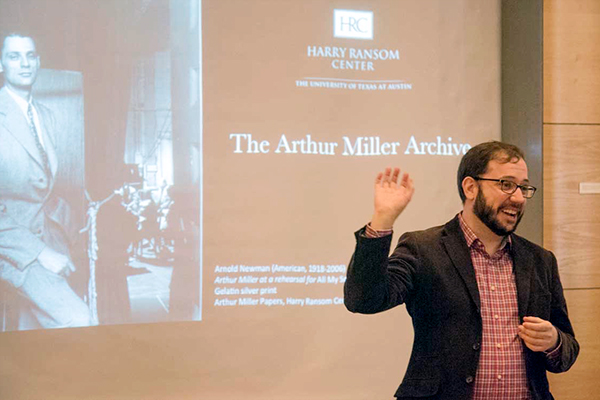UT’s Harry Ransom Center announced the launch of the Theatre 2020 Collection with theater professionals around the world Oct. 9 to document 2020’s effects on the theater industry.
The collection will contain stories, recordings and speeches that describe how theater professionals have adapted to performing during the COVID-19 pandemic. Eric Colleary, Cline curator of Theatre and Performing Arts at the Harry Ransom Center, said the year is a pivotal moment in theater history, not only because of COVID-19, but also because of social changes highlighted in movements such as Black Lives Matter.
“Theaters around the world have been closed since March with the pandemic,” Colleary said. “But the theater community has also been wrestling a lot with reckoning with racial injustices. … There have been a lot of conversations about arts, advocacy and what the arts mean to society.”
The collection is also significant because of the shift from physical to digital documentation, Colleary said.
“We’re really trying to be proactive and reach out to theater professionals to invite them to submit digital documents that reflect the work they’re doing and the things that are going on in their lives right now,” Colleary said.
Playwright Brian Polak, a contributor to the project, said the collection would offer a window into what the theater industry was going through during this year.
“It’s (going to) give them a real, authentic direct line into what theater makers were thinking and feeling,” Polak said.
Robert Mark Morgan, another contributor to the collection, said the experiences shared by performers gave him inspiration for new ways to practice the art.
“It helped me to realize ‘Okay, that’s a really interesting way of doing a show that I’d never thought of,’” said Morgan, a drama professor at Washington University in St. Louis, Missouri. “There’s a lot of (virtual and augmented reality) work I’m diving into that I never would have otherwise.”
Colleary said the collection will be instrumental in helping people realize how historic this year has been in shaping theater.
“We’re getting questions about what kinds of conversations are happening right now among theater professionals, how bad are budgets, what are the circumstances that led to that and why,” Colleary said.“The questions that people are already asking and the material that we’re getting will help to answer those questions, both now and in the future.”


















